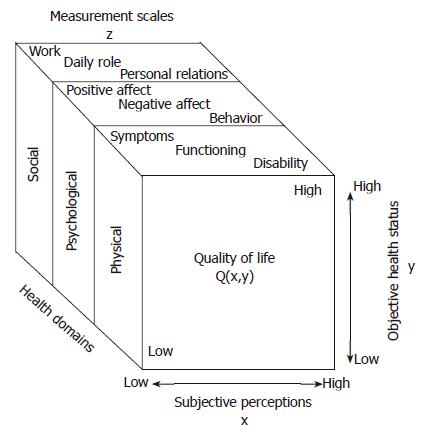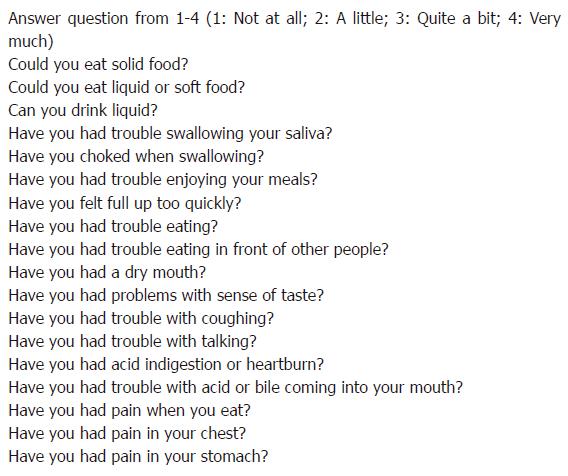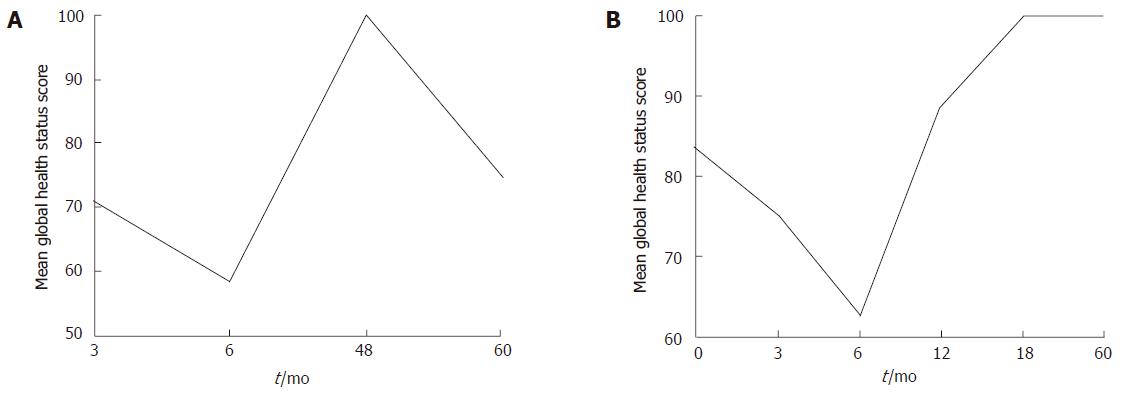©2006 Baishideng Publishing Group Co.
World J Gastroenterol. May 28, 2006; 12(20): 3213-3218
Published online May 28, 2006. doi: 10.3748/wjg.v12.i20.3213
Published online May 28, 2006. doi: 10.3748/wjg.v12.i20.3213
Figure 1 To measure QOL, social, psychological and physical domains of illness are assessed using measurement scales (z).
QOL (Q) is dependent on both subjective and objective items. For a questionnaire to be validated, Z must equal Q. (Reprinted with permission from Testa et al N Engl J Med 334: 835-840, 1996).
Figure 2 The EORTC QLQ-18 is a specific module for esophageal cancer.
Patients complete the questionnaire based on QOL symptoms experienced within the last week. (Reprinted with permission from the EORTC.)
Figure 3 A: QOL after THE in patients with esophageal cancer ≥ 70 years of age.
QOL declines sharply for six months and then improves, but the recovery is not durable; B: QOL after THE in patients with esophageal cancer ≤ 55 years of age. QOL declines for six months, but then improves in a more sustained fashion.
- Citation: Viola KV, Ariyan C, Sosa JA. Surgical perspectives in gastrointestinal disease: A study of quality of life outcomes in esophageal, pancreatic, colon, and rectal cancers. World J Gastroenterol 2006; 12(20): 3213-3218
- URL: https://www.wjgnet.com/1007-9327/full/v12/i20/3213.htm
- DOI: https://dx.doi.org/10.3748/wjg.v12.i20.3213















